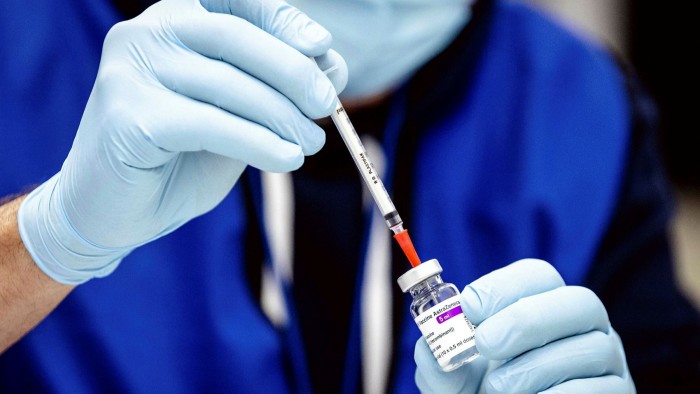Pharma is riding a vaccine high, but reputational risks loom


Simply sign up to the Pharmaceuticals sector myFT Digest -- delivered directly to your inbox.
Pharmaceutical companies have never had it so good. The rapid rollout of Covid-19 vaccines has made household names of Pfizer and AstraZeneca and the whole industry is winning praise for co-operation.
But the decision this week by some governments to suspend use of the Oxford/AstraZeneca vaccine over fears of possible blood clots shows just how fragile public trust can be. What has been a public relations triumph could, if handled badly, turn out to be a trap.
Big Pharma’s reputation has been down in the dumps for years, after a series of scandals involving Medicare fraud, improper payments to doctors and poorly tested drugs that damaged health. Recently, the opioid epidemic and high charges for both new and old medicines have further alienated the public. Political pressure was mounting in the US, the most profitable market.
Covid-19 changed all that. Since January 2020, the share of the US public that has a positive view of the sector has nearly doubled from 32 to 62 per cent, the highest since the survey began in 2003, says Rob Jekielek, managing director at The Harris Poll. And 56 per cent in the UK told The Association of the British Pharmaceutical Industry in January that their view of pharma had improved during coronavirus.

Drug companies, previously seen as avaricious, anonymous corporations, were revealed to be full of responsible, hardworking scientists. Russia distributed jabs that weren’t fully tested, and western regulators allowed drugmakers to use shorter “emergency” approval procedures.
Yet the big companies opted not to take all the shortcuts. Last autumn, the nine biggest makers agreed not to release jabs without large clinical trials.
Eli Lilly chief executive David Ricks says the sector has a “once in a generation opportunity to reset” its reputation. Some of the worst problems have already been addressed: since 2013, companies have had to disclose payments to US doctors and more clinical trial data is being released, although databases remain incomplete.
Some companies are even applying public relations muscle to increase wider understanding. Pfizer paid National Geographic to come into its labs and follow the vaccine development process, resulting in online content and a video that aired last week in the US. Johnson & Johnson’s social media video series about its search for a jab has drawn 90m views in 100 countries, with more episodes planned.
But there are significant risks for the sector if it appears to be trying to cash in on the goodwill. “We know the world is closely watching how . . . we move forward as an industry after the pandemic is over,” says Stephen Ubl, president of the US industry group PhRMA.
AstraZeneca insists there is no evidence that its jab increases the risk of blood clots, and the EU drugs regulator says the benefits outweigh the risks. Still, the furore is a harbinger of problems. Any side-effects are frightening because they involve healthy people becoming sick. Yet, because these are unavoidable, many countries have compensation programmes for those who are harmed.
The rapid development and rollout of the Covid-19 jabs means there has been less chance to find and prepare the public for side-effects, and the AstraZeneca suspensions show just how quickly opinion can shift. Though drugmakers took only partial advantage of the looser Covid rules, if vaccine side-effects prove severe, the end result could be even tougher scrutiny of new products and higher costs.
Nor can the industry wave off complaints about pricing and access. If anything they could become worse if vaccine makers appear to profit from the pandemic after receiving government support.
AstraZeneca and Johnson & Johnson have promised not to profit from their jabs “during the pandemic”. Yet Pfizer said last month that it expected to sell $15bn of its Covid vaccine this year, with profit margins in the “high 20s” as a percentage of revenues. The company notes that under its tiered pricing strategy, low-income countries pay a non-profit price. But the rollout to poorer countries has been slow.
If the pharma companies are seen to favour those who can pay higher prices, that would reinvigorate the debate over the pricing of other medicines. Already, US campaigners are demanding an antitrust investigation of rising prices in the insulin market. “We should now be holding pharma companies to a higher bar because they’ve shown us what they can do,” says Olivia Webb, a health policy analyst at the American Economic Liberties Project.
Comments